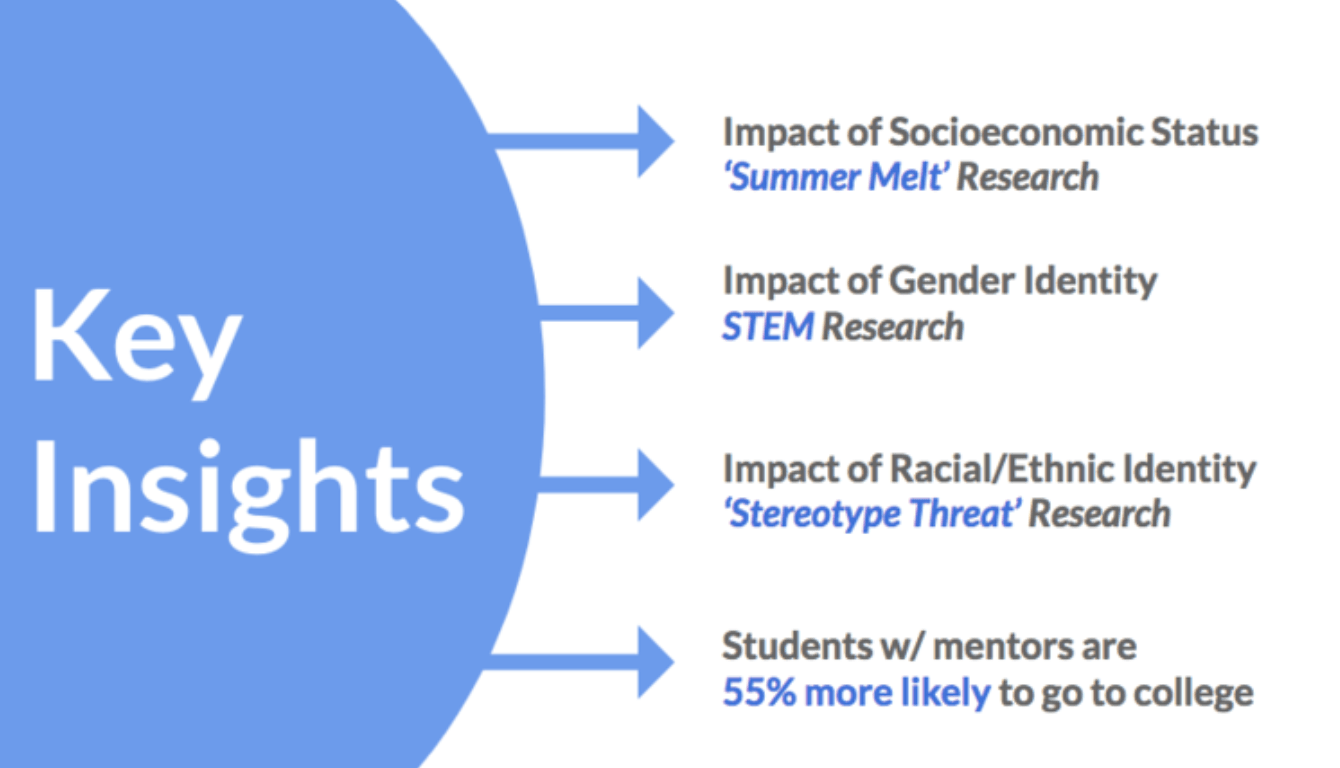This past week, our team jumped off the diving board and into the water. Our scope has narrowed to “The effects of low socioeconomic status/background that yield disadvantages in college preparedness and resilience”. We began identifying organizations that might have insight on the high school experience (Questbridge, Teach for America, etc.) and scheduling interviews that will hopefully elucidate the relationships between student, home, and school. A key insight came when we learned of a recent push by Houston ISD towards fostering a school environment that emphasizes restorative justice, which further narrowed our scope to mentorship and mental health.
Interviews
- Kathy from Breakthrough says:
- BT Students have a hard time finding a good fit college
- BT Alumni don’t remain in contact after they graduate high school
- Chris from KIPP Middle School says:
- Many students don’t have an example of someone that went to college to follow
- Renee from DREAM Mentorship says:
- Connections are easier to make between mentor-mentee of similar backgrounds
Insights from Surveys
- Rice students from Disadvantaged Backgrounds
- “I wish that I had a financial advisor who could really have sat down with me and helped me understand how to pay for college, about student loans, about scholarships, etc. I feel that in the regard, first-gen students have a disadvantage, because no one in our families know how to help us with it.”
- “Academics [in college] are completely harder than my high school and the constant socializing gets tiring.”
- 9th – 10th grade Breakthrough Students
- In terms of the college application process, most people were least prepared for college interviews and applying for financial aid.
- 11th – 12th grade Breakthrough Students
- 46.4% are first-generation college students.
